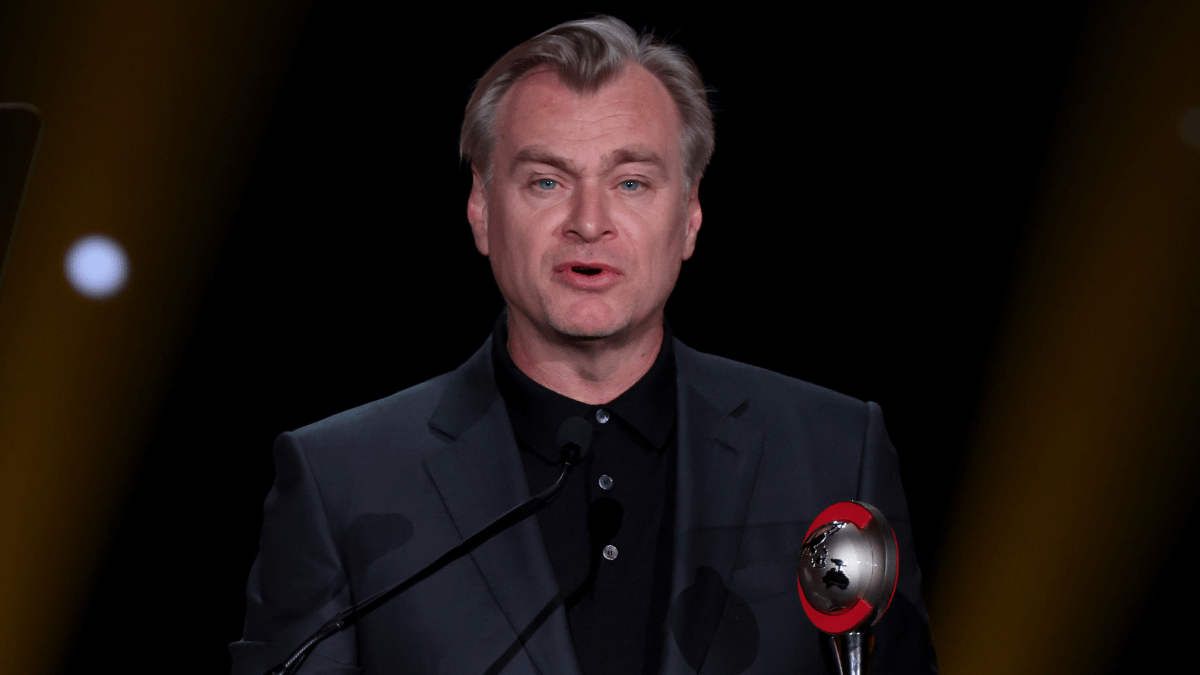We’re nearly a month out from the theatrical bow of Christopher Nolan‘s Oppenheimer, and while the film’s R-rating will do it no favors in its box-office bout against Barbie, the nigh-unmatchable weight of its subject matter demands it; indeed, the story of history’s most important man will not and should not be an easy one to stomach, and viewers should prepare to leave screenings with heavy hearts and a myriad of questions.
The film’s timing is nothing short of impeccable; as Nolan prepares to offer a glimpse into a world that wasn’t prepared for the earth-shattering introduction of new technology like the atomic bomb; the world we inhabit is on the verge of unprecedented changes in its own right as the rise of artificial intelligence has made for wary artists and insufferable gurus.
The parallel isn’t lost on the filmmaker, who commented in an interview with WIRED on the “cautionary tale” nature of Oppenheimer and any film, including his previous effort Tenet, that has a plot beat involving the haphazard, widespread introduction of new technologies on a world that isn’t responsible enough to wield them.
“It’s not the same. But it’s the best analogy—which is why I used it in Tenet—for the dangers of unthinkingly unleashing a new technology on the world. It’s a cautionary tale. There are lessons to be learned from it.”
Of course, the Dark Knight mastermind understandably doesn’t view AI to be quite as devastating a newcomer as the atomic bomb, but in no way is he lost on the dangers that such a technology carries in its bag of possibilities; in fact, he seems to be more cognizant of the threats than most any of us. Speaking further in the interview, Nolan identified the potential of AI to excuse human responsibility from human actions, highlighting the importance of recognizing AI as a tool rather than an entity all its own.
“The issue with AI, to me, is a very simple one. We watch companies use algorithms, and now AI, as a means of evading responsibility for their actions. If we endorse the view that AI is all-powerful, we are endorsing the view that it can alleviate people of responsibility for their actions—militarily, socioeconomically, whatever. The biggest danger of AI is that we attribute these godlike characteristics to it and therefore let ourselves off the hook.”
He later mused on how attributing humanity to AI would birth similar ethical problems that came from the rise of corporate personhood.
“The person who wields it still has to maintain responsibility for wielding that tool. If we accord AI the status of a human being, the way at some point legally we did with corporations, then yes, we’re going to have huge problems.”
Nolan couldn’t be more on the nose in his assessment; a tool is only as malicious as those who wield it, and as someone who’s strongly against giving artificial intelligence even an inch in the realms of journalism or entertainment, even I can’t deny that there’s probably a morally-upstanding, wildly beneficial space for AI in some other sector.
The real issue, then, lies in who’s going to have the most access to that tool, and what the tool subsequently gets used for, and a quick glance at the state of the world stage doesn’t inspire much hope for those meditations.
Oppenheimer drops into theaters on July 21.

